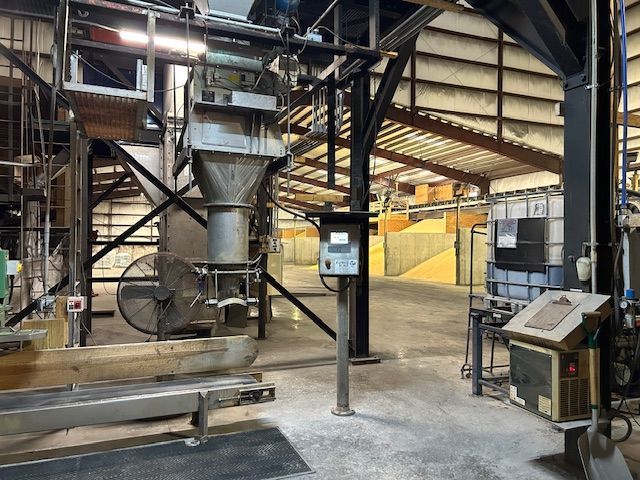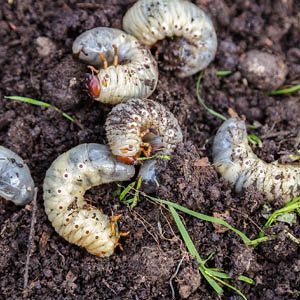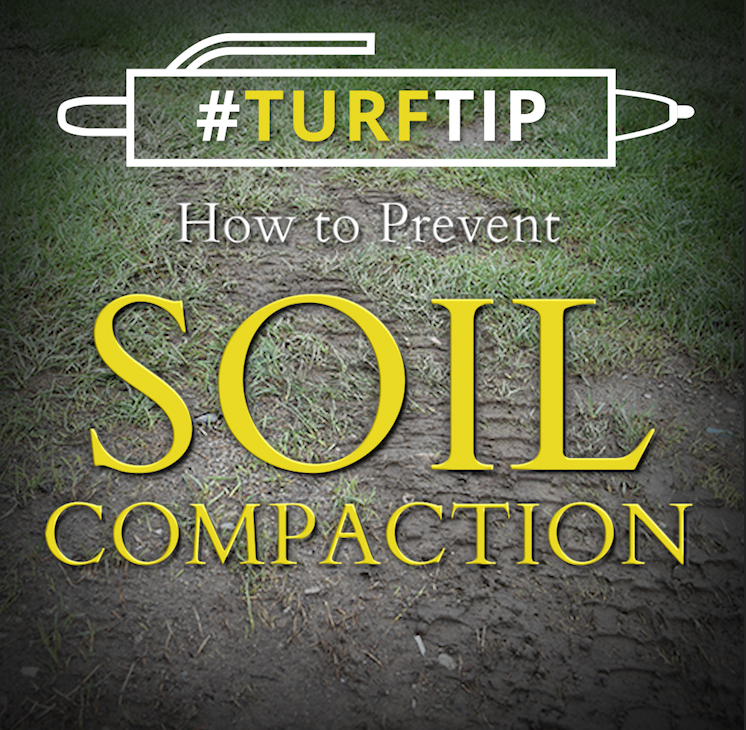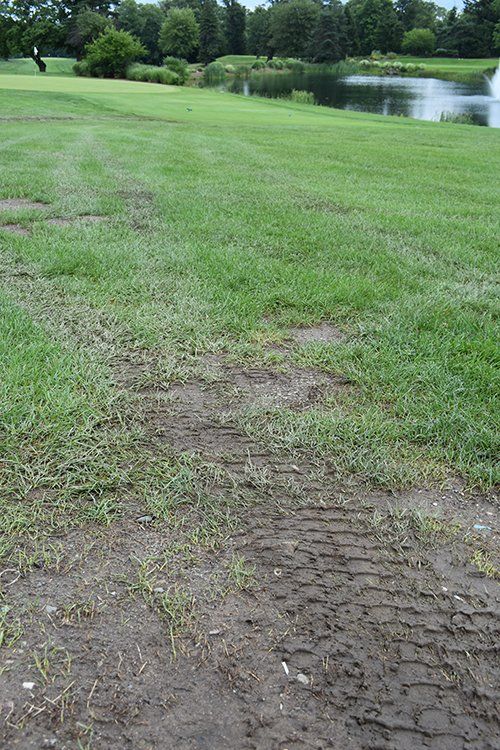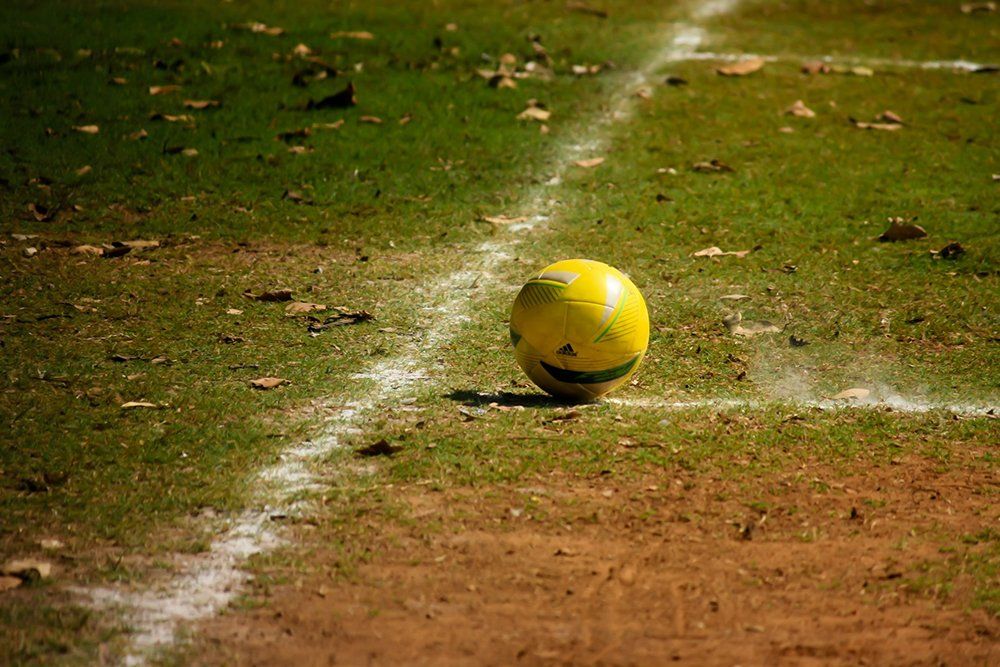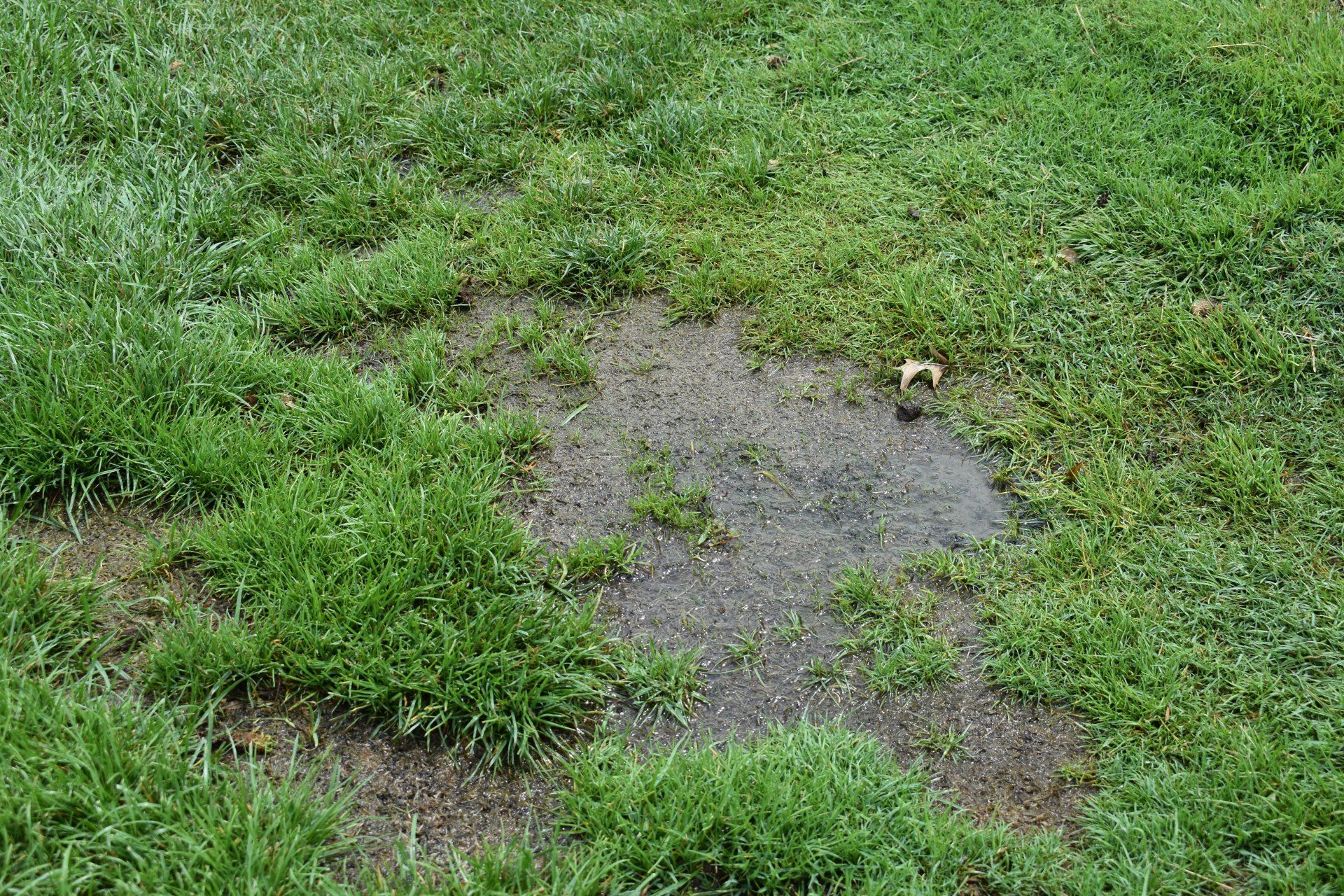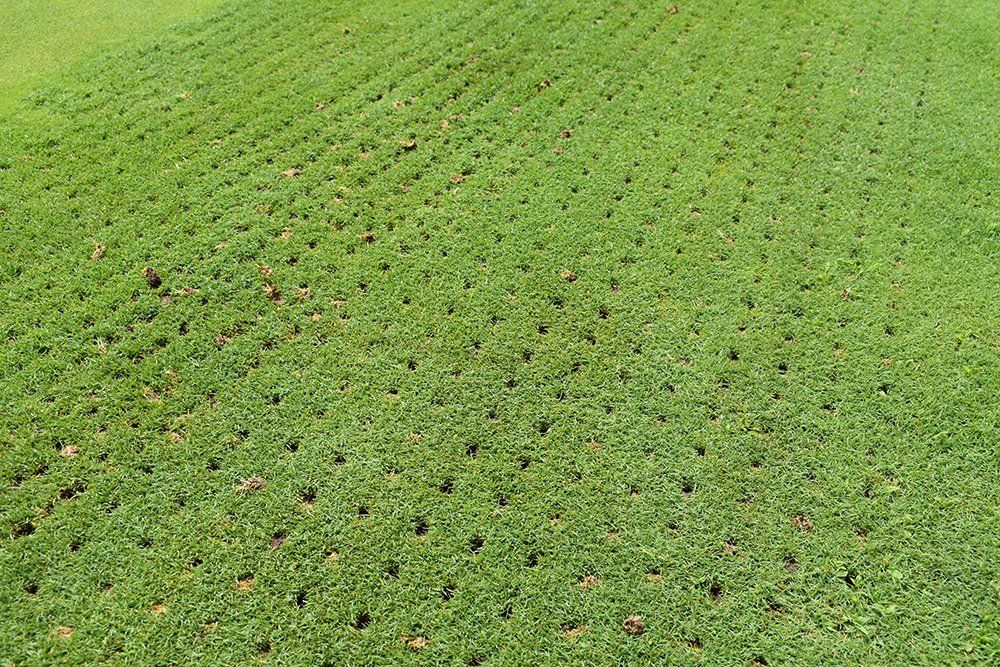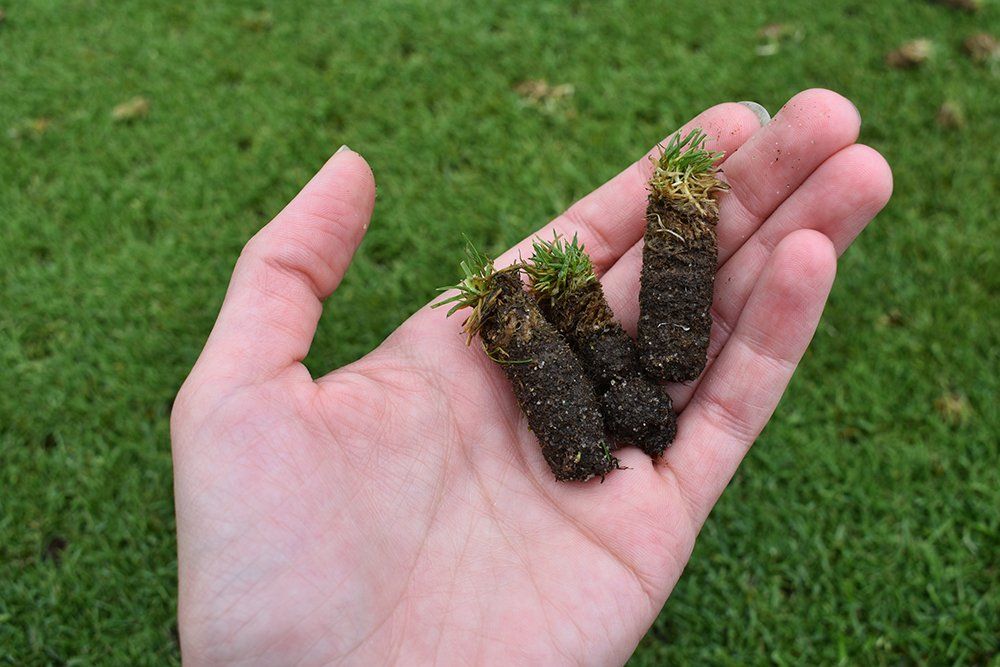Soil compaction is caused by the lack of pore space in the soil, which leads to a reduction in oxygen, water infiltration and nutrient availability. As the pore space decreases the soil density increases, starving the turfgrass and the microbes in the soil from the necessities needed for healthy survival.
LEADING CAUSES OF SOIL COMPACTION
There are many factors that can lead to compaction but the leading issues are poor soil composition and environmental stressors. To produce an ideal soil composition the right combination of inorganic and organic matter is necessary. Low levels of organic matter make the soil more susceptible to soil compaction and an unbalanced soil composition of inorganic matter including sand, silt and clay can become prone to damage. Sports turf is often subjected to excessive vehicle and foot traffic caused by golf carts or athletes that lead to compaction and bare spots. Commercial and residential turf can also develop compacted soil and thatch layers due to increased traffic, especially more damaging when wet or in the peak of summer when turf is less resilient. Poor drainage and irrigation can also be a factor and can be identified by puddling on turf, which slowly dissipates after a rain.
HOW TO PREVENT AND AVOID SOIL COMPACTION
Like many turfgrass issues that arise, prevention is key to avoiding compaction. Correcting your soil composition and assuring it has the correct balance of inorganic and organic materials can avoid the need to manage damage. (To learn more about ideal soil composition, watch the TurfLab Ch:4 webinar: Soil Amendments and Ideal Soil for a comprehensive explanation.) Since compaction from vehicle or foot traffic can worsen when turf is wet of dried out, try to keep traffic limited in these conditions. For sports turf, it is recommended to move tee markers, flag sticks or rotate practice fields to avoid excessive wear. The most important prevention is to follow best practices for managing turfgrass including, regular aeration, soil amending, adding organic material, proper irrigation/drainage, over seeding (when needed) and fertilization.
For professional fertilizers, soil amendments and organic material including AMP-XC™ and humic enriched products available, please visit TurfCare’s online Product Catalog.
For green industry professionals or others interested in ordering Turfcare products, please contact our Customer Service to find a distributor near you.
Turf Care Supply - TurfReport Blog
